*** Proof of Product ***
Exploring the Essential Features of “Steven Atkinson – Geriatric Conference – PESI”
Geriatric Conference
Speaker: Steven Atkinson, PA-C, MS
Duration: 14 Hours 06 Minutes
Format: Audio and Video
Description
Are you keeping up with the current recommendations and guidelines?
No matter your specialty, you MUST know how to address the unique concerns of the older adults under your care.
Geriatrics is a field in and of itself, but many of us haven’t had extensive training on the nuances and complexities that make treatment challenging. In this comprehensive recording, geriatric expert, Steven Atkinson, will guide you through the normal and abnormal changes of the aging mind and body, providing you with the knowledge that will improve the care you provide.
Steven is passionate about his work and sharing his expertise with other professionals. Leave with practical and insightful tips and tools you can use the next day!
- Identify complications and respond more appropriately
- Confidently and effectively communicate with patients and their families
- Provide safer and more effective care
Get management strategies and more for:
- Alzheimer’s Disease & Dementias
- Pain Management
- Geriatric Pharmacology
- Geriatric Emergencies
- Managing Challenging Behaviors
- Caregiver Stress & Burnout
- And Much More
Speaker
Steven Atkinson, PA-C, MS
Steven Atkinson, PA-C, MS, is a board-certified Physician Assistant specializing in Geriatric Internal Medicine. He practices medicine in the greater Minneapolis area. In addition to his private practice, he has been on the faculty at the University of Utah since 1994 and has been involved in medicine for over 30 years.
Steven is the co-founder of Twin Cities Physicians, which serves older adults at nearly all levels of their care. He has presented nationally for over 15 years, primarily speaking about geriatric-related syndromes.
Steven is the author of Geriatric Pharmacology: The Principals of Practice & Clinical Recommendations, Second Edition, and also sits on several boards whose purpose is to elevate the level of care in medicine for the patients they serve. Steven has been described as a “dynamic” educator and one of the most engaging presenters around.
Speaker Disclosures:
Financial: Steven Atkinson is the founder and co-owner of Twin Cities Physicians and Midwest Geriatrics Services, and he is the owner of Mindful Geriatrics, LLC. He provides legal counseling services to medical professionals and receives compensation. He is adjunct faculty at the University of Utah. Steven Atkinson receives a speaking honorarium and recording royalties from PESI, Inc. He has no relevant financial relationships with ineligible organizations.
Non-financial: Steven Atkinson is a member of the board for MDMA. He is a member of AMDA/PALTC, GMPA, and others.
Objectives
DAY ONE
- Distinguish the signs and symptoms of Alzheimer’s disease and other dementias.
- Conduct appropriate diagnostic tests to achieve accurate diagnosis.
- Devise interventions that are effective and promote positive communication between staff, family & the older adult.
- Apply techniques and identify strategies to avoid adverse drug events and drug disease interactions.
- Develop individualized monitoring plans for geriatric patients through the evaluation of high risk medications.
- Catalogue at least three new guideline recommendations related to geriatric pharmacology.
- Implement controlled substance/pain management contracts into practice.
- Differentiate symptoms of controlled substance and alcohol misuse and abuse.
- Execute best practice methods for prescribing in the geriatric population.
DAY TWO
- Analyze strategies to diminish the occurrence of behavioral problems in individuals with dementia.
- Debate behavioral and environmental techniques to diminish challenging behavioral problems.
- Differentiate how cognitive impairment in older individuals is affected by environment, caregiver schedules, and responses to the behaviors.
- Develop strategies to identify abuse and neglect.
- Distinguish etiologic and pathologic factors associated with neurological, orthopedic, abdominal, cardiovascular & pulmonary emergencies.
- Inspect the atypical presentation of the elderly and how to effectively manage comorbidities.
- Plan how to apply age-sensitive principles for medication dosing and management to clinical scenarios.
- Test key questions useful for identifying and managing polypharmacy in older adults.
Outline
DAY ONE
SESSION 1: DIFFERENTIATING DEMENTIAS
Distinguishing the various types of dementia is often difficult. This session provides tools to appropriately screen patients experiencing dementia, along with discussion of the most effective interventions to improve the care you provide.
- Normal vs. Abnormal Aging
- Types of Dementias
- Alzheimer’s Disease
- Parkinson’s Disease Dementia
- Substance-Induced Neurocognitive Disorder
- Pharmacological Management
SESSION 2: GERIATRIC PHARMACOLOGY: TOOLS FOR THE HEALTHCARE PROFESSIONAL
For geriatric patients taking more than five medications, the statistical chance of a drug drug interaction or adverse event is 100%! For those experiencing an adverse drug event, one third will require additional treatment. This session will provide straightforward tools that will help you care for older adults receiving multiple medications.
- Drug Utilization Amongst the Elderly
- Billing Codes That You MUST Know
- Clinical Pharmacological Issues in the Elderly
SESSION 3: PAIN MANAGEMENT IN THE ELDERLY
This presentation will review the different categories of controlled substances and their appropriate use in the geriatric patient. Explore special considerations and tools to aid in prescribing and managing pain in the geriatric patient.
- The Challenges Associated with Controlled Substances
- Pain Control… Is every patient’s RIGHT
DAY TWO
SESSION 1: MANAGING GERIATRIC BEHAVIORS: WANDERING, AGGRESSION, MALNUTRITION AND MORE
Behaviors such as wandering, aggression and anxiety can pose significant barriers to the delivery of essential care. Geriatric syndromes such as malnutrition, dehydration and insomnia can diminish quality of life and threaten independence. This session will explore the most frequent problematic behaviors and discuss strategies to improve the care you provide to your geriatric patients.
- Wandering
- Physical Aggression
- Inappropriate Sexual Behaviors
- Eating Issues & Nutrition in Elders with Dementia
- Sleepless Nights & Sundowning
- Professional Issues
SESSION 2: GERIATRIC EMERGENCIES
A high-energy, dynamic session filled with interesting case studies, insightful discussions and interactive learning. You will leave with practical techniques that you can apply right away – if you work with geriatric patients, you don’t want to miss this!
- Physiological Changes with Aging
- Common Underlying Chronic Illness
- Cardiovascular Emergencies
- Pulmonary Emergencies
- Cerebrovascular Emergencies
- Orthopedic Emergencies
- Abdominal Emergencies
SESSION 3: TOP TEN MEDICATIONS TO AVOID IN THE GERIATRIC PATIENT
Explore medication dosing guidelines and polypharmacy management principles to ensure safe prescribing in the geriatric patient. Review the top ten medications to avoid and alternatives that can be equally effective.
- The BEERS List
- Risks Associated with Anticholinergic Drugs
- The TOP TEN
- 5 Things Patients & Physicians Should Question
Target Audience
- Nurses
- Nurse Practitioners
- Clinical Nurse Specialists
- Physician Assistants
- Physical Therapists
- Physical Therapist Assistants
- Occupational Therapists
- Occupational Therapy Assistants
- Speech-Language Pathologists
- Social Workers
- Physicians
Reviews
Laura M
“This was a fantastic course! I learned a lot and was impressed with the presentation!”
Laura C
“I LOVED this presentation. He was engaging, gave real life examples and made the experience fun and informative.”
Julie H
“I was very pleased with this presentation.”
Please see the full list of alternative group-buy courses available here: https://lunacourse.com/shop/

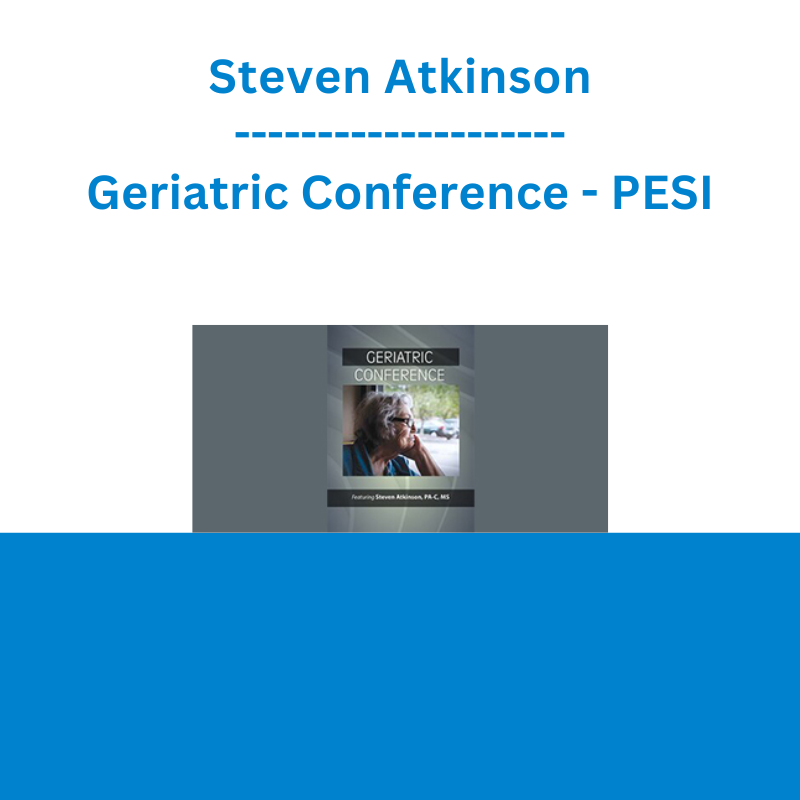








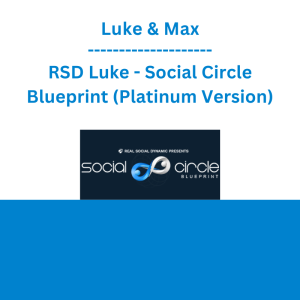 Luke & Max - RSD Luke - Social Circle Blueprint (Platinum Version)
Luke & Max - RSD Luke - Social Circle Blueprint (Platinum Version) 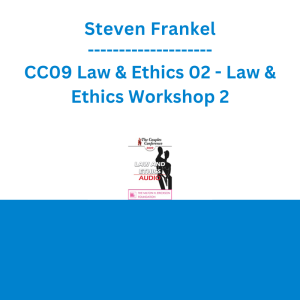 Steven Frankel - CC09 Law & Ethics 02 - Law & Ethics Workshop 2
Steven Frankel - CC09 Law & Ethics 02 - Law & Ethics Workshop 2  Greg Loehr - Advanced Option Trading With Broken Wing Butterflies
Greg Loehr - Advanced Option Trading With Broken Wing Butterflies  Atlas API Training - API 570 Exam Prep Training Course
Atlas API Training - API 570 Exam Prep Training Course  Simpler Trading - Bruce Marshall - The Options Defense Course
Simpler Trading - Bruce Marshall - The Options Defense Course  George Fontanills & Tom Gentile - Optionetics 6 DVD Series Home Study Course (Digital Download)
George Fontanills & Tom Gentile - Optionetics 6 DVD Series Home Study Course (Digital Download)  Toshko Raychev - Profit System + ITF Assistant
Toshko Raychev - Profit System + ITF Assistant  Julie Stoian & Cathy Olson - Launch Gorgeous - Funnel Gorgeous Bundle
Julie Stoian & Cathy Olson - Launch Gorgeous - Funnel Gorgeous Bundle  Chris Capre - Advanced Price Action Ongoing Training & Webinars
Chris Capre - Advanced Price Action Ongoing Training & Webinars  Fred Haug - Virtual Wholesaling Simplified
Fred Haug - Virtual Wholesaling Simplified  Erik Banks - Alternative Risk Transfer
Erik Banks - Alternative Risk Transfer 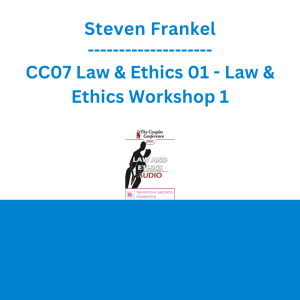 Steven Frankel - CC07 Law & Ethics 01 - Law & Ethics Workshop 1
Steven Frankel - CC07 Law & Ethics 01 - Law & Ethics Workshop 1  Oliver Velez - Essential Strategy Of Trade For Life
Oliver Velez - Essential Strategy Of Trade For Life  Alphashark - The AlphaShark SV-Scalper
Alphashark - The AlphaShark SV-Scalper  Steven Frankel - EP17 Law & Ethics - What Goes Around...: Part 03
Steven Frankel - EP17 Law & Ethics - What Goes Around...: Part 03  SMB - Options Training
SMB - Options Training 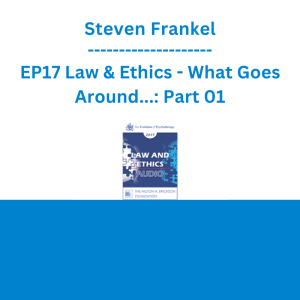 Steven Frankel - EP17 Law & Ethics - What Goes Around...: Part 01
Steven Frankel - EP17 Law & Ethics - What Goes Around...: Part 01 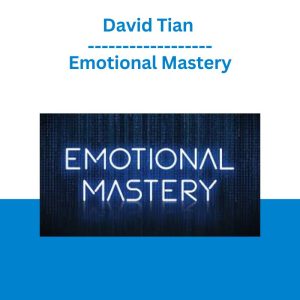 David Tian - Emotional Mastery
David Tian - Emotional Mastery  George Fontanills & Tom Gentile - Optionetics Wealth Without Worry Course
George Fontanills & Tom Gentile - Optionetics Wealth Without Worry Course